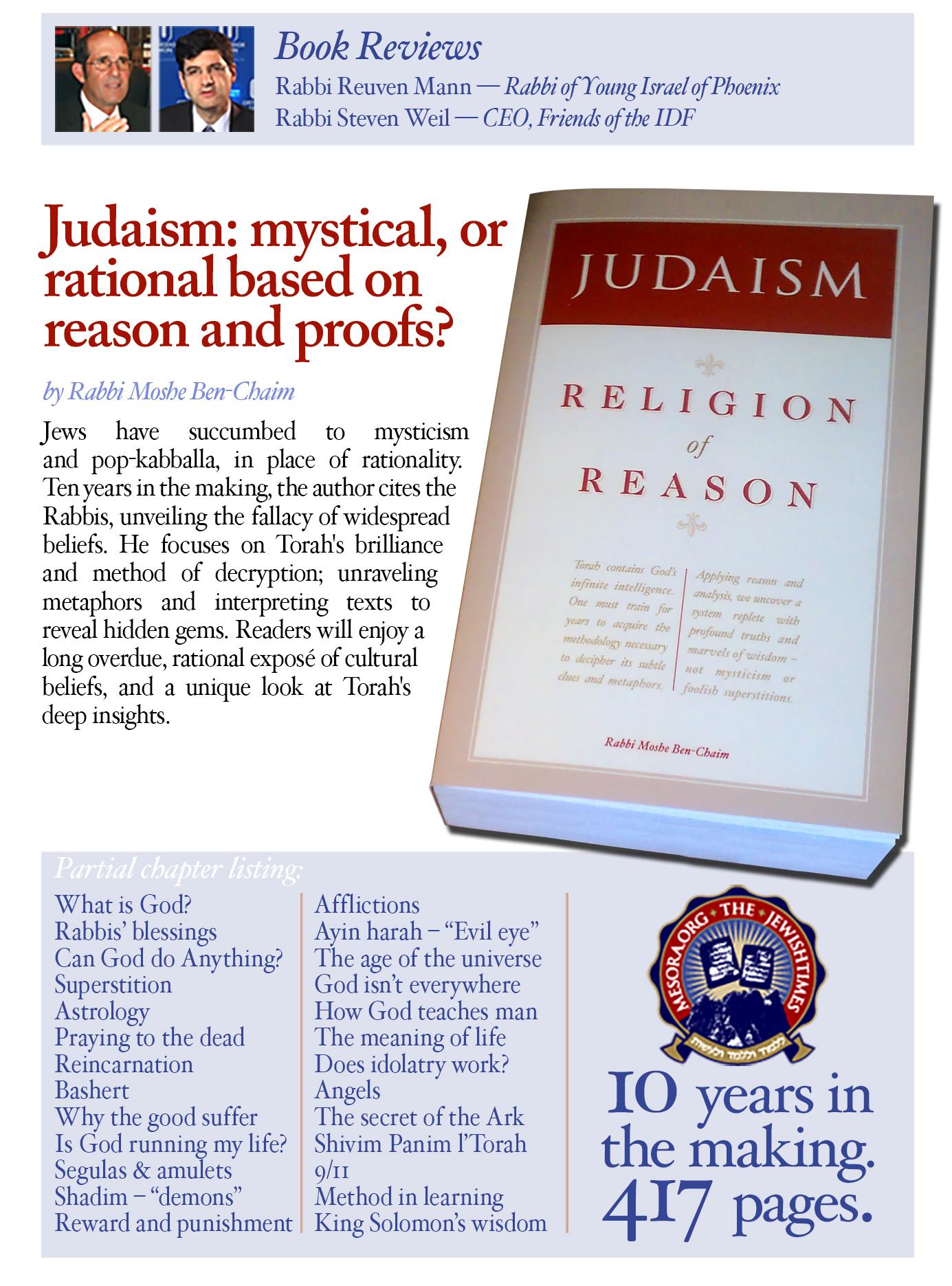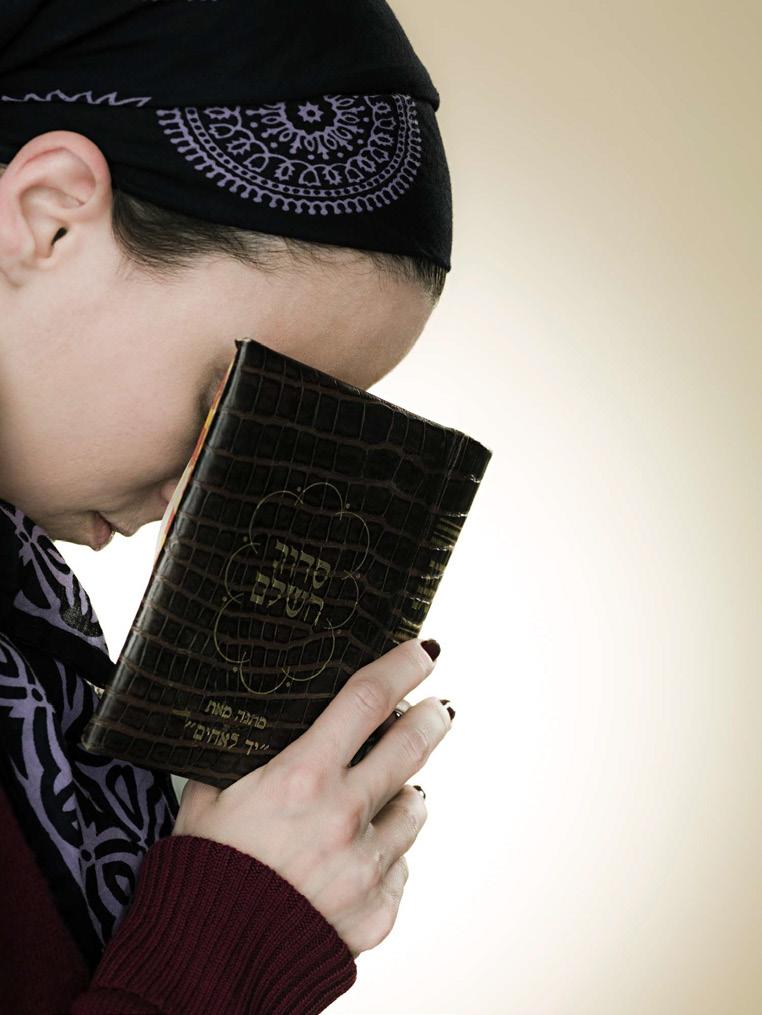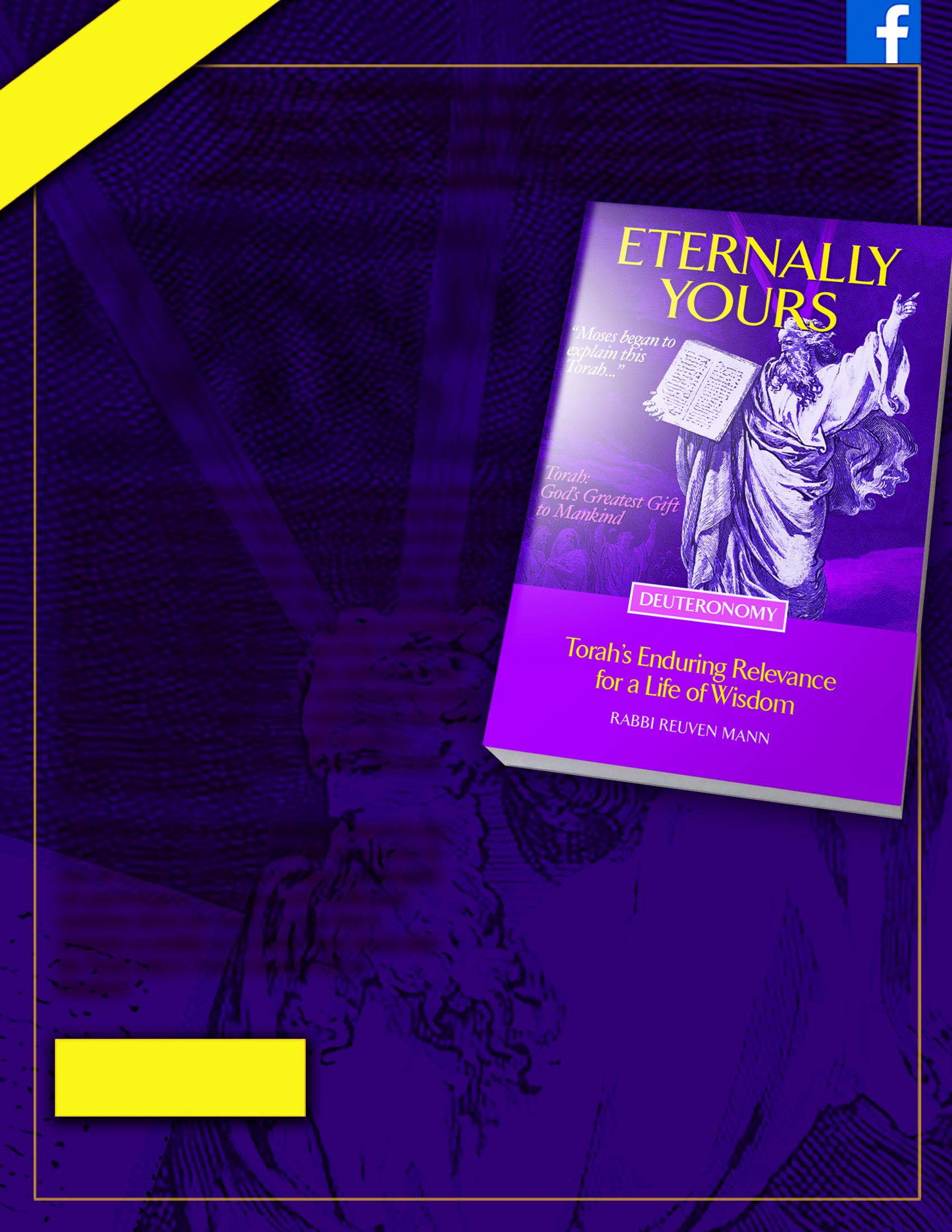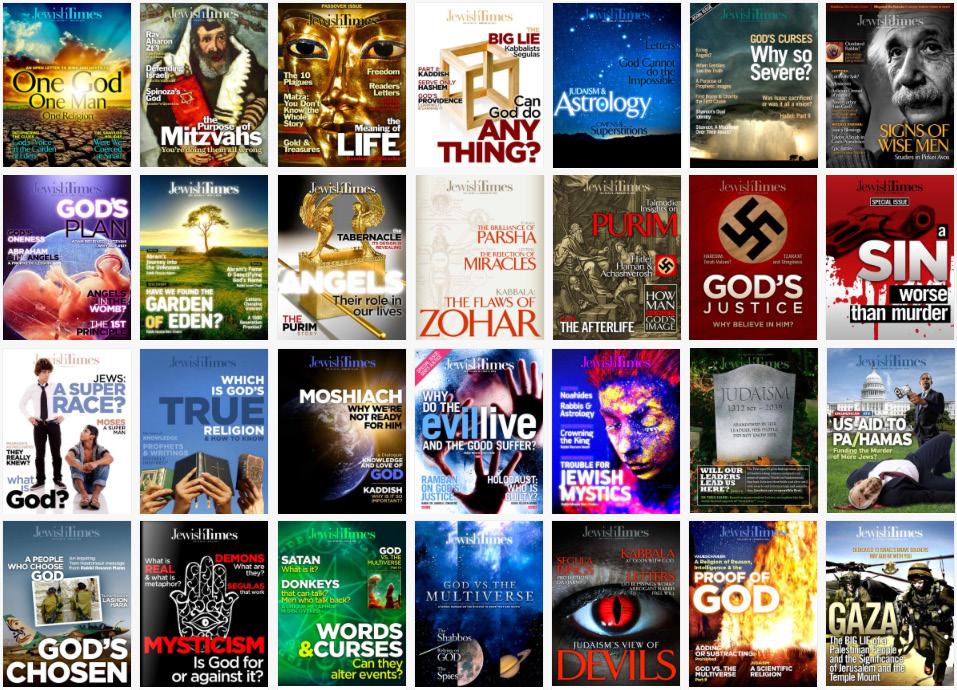

















RABBI REUVEN MANN



Just click any icon in







| Please send letters and questions to: Comment@Mesora.org |
RABBI MOSHE BEN-CHAIM
A sin without action, yet worse than others
RABBI MOSHE BEN-CHAIM
Patterns found in Bible teach lessons in addition to the facts
RABBI REUVEN MANN
Torah alludes to the Holocaust, with crucial lessons on Reward & Punishment
RABBI MOSHE BEN-CHAIM
Extending your prayer can be either good or evil, depending on expectations

Below we discuss a unique sin which requires no action. But doesn’t all sin require some act? And if not, what is the sin?
RABBI MOSHE BEN-CHAIM
In Leviticus 19:35-37 we read:
Do not perform falsehood in justice, in length, in weight, and in volume. Righteous (accurate) scales, righteous stones, righteous dry measures and righteous liquid measures there shall be to you, I am Hashem your God Who took you out of the land of Egypt. And you shall guard all My statutes and all My judgments, and you shall do them, I am Hashem.
Later, in In Deuteronomy, 25:13-16 the Torah commands us again regarding these weights:
You shall not have to yourself in your pocket, stone (weight) and (another) stone, a larger and smaller. You shall not have to yourself in your house, dry measure weight, and (another) dry measure weight, a larger and smaller. A complete and righteous stone weight you shall have to yourself, a complete and righteous dry measure weight you shall have to yourself, in order that your days be lengthened on the land that Hashem your God gives to you. For it is an abomination of Hashem your God all who do these, all who do falsehood.
We must understand the crime of dishonest weights. Crooked individuals care but for their own wealth, and cheat to obtain it. Produce weighed when sold. Let’s make the buyer our swindler: The buyer tells a storeowner he wishes to purchase one pound of rice. This buyer then proceeds to take out his own “pound” weight to weigh what the storeowner placed on the scale. However, the buyer is crooked and uses what only seems to be a pound weight. In fact, that weight is larger. In essence, the buyer obtains more than a pound’s worth of rice, but pays only the price of a single pound. He has cheated the storeowner. This same swindler may also sell his own produce: here, he is approached by a buyer seeking two pounds of apples. The swindler now uses a different weight, one which is less than a pound, as he hollowed out the bottom, so the buyers are unaware. The swindler proceeds to weigh two pounds of apples. In truth, the buyer, unknowingly, receives less than two pounds, although the swindler charged him for two pounds. Again, the swindler cheated someone. We now understand why the Torah formulates the prohibition against both types of weights, a lesser and a larger. (Kli Yakar)
The reason the Torah records the same law multiple times, with differences in each case, is to enable our detection of additional implications of that law. What are some differences between the laws of dishonest weights recorded in Leviticus, and in Deuteronomy? I will list each question by number, and at the very end, offer possible answers correlating to these numbers:
1) Leviticus grouped weights together with the command not to oppress the convert. What is the equation between dishonest weights and oppressing converts, and why is it mentioned only in Leviticus?
2) In Deuteronomy, why are we not commanded against “using” these weights? Isn’t this the
true corruption, when we use them to cheat another? Deuteronomy does not seem to forbid use, but addresses only their possession and creation. Why?
3) In general, why isn’t “dishonest weights” subsumed under “stealing”? How are dishonest weights different than stealing or robbery, that the Torah has a separate command against them? Is the crime equal, worse, or less grave a sin? It would appear that dishonest weights are far worse, as the Torah does not call stealing an abomination.
4) Why is the term “abomination” referred to only in Deuteronomy?
5) Deuteronomy commands that one may not have these weights in his pocket or in his house. What is significant about these two domains?
6) What is Maimonides’ principle that one who uses dishonest weights is “likened to one who denies the Egyptian Exodus”?
7) Why the division of the laws regarding weights into two locations, Leviticus and Deuteronomy?
Do the verses give us any indications? Certainly. By categorizing our two Torah instances of dishonest weights, we will create a framework within which we may approach some possible answers.
It appears from Leviticus that this section addresses the prohibition of “action”: “Do not perform” falsehood in justice... Here alone do we find the prohibition not to swindle, in action. However, these words are not found in Deuteronomy. Abusing another person’s ignorance for the purpose by stealing is prohibited only in Leviticus. Here, we are warned against only the “act” of swindling per se.
Perhaps this also explains why Leviticus grouped dishonest weights with the laws of abusing the convert. In both cases, a person is forbidden to capitalize on another individual’s vulnerability; a convert may be abused for his faulty past, and a neighbor’s ignorance through dishonest weights. Rashi explains why the words “I am Hashem your God Who took you out of the land of Egypt” follow these laws of dishonest weights in Leviticus: to indicate that just as in Egypt, God discerned between a drop of semen which was a firstborn and which was not, so too in this “hidden” matter, God will discern and punish one who cheats with dishonest weights. What does Rashi teach on another level? The one who uses dishonest weights is denying
that God knows his crookedness. Rashi says a response is necessary for the swindler to hear. He must be reminded of God’s “Seeing Eye.” However, we may ask, in Ethics of the Fathers, 2:1, we are told that by “pondering three matters, man refrains from sin; a Seeing Eye, a Hearing Ear, and that all our actions are recorded in a book.” One who swindles does not pay heed to the Seeing Eye. He cares about man’s eye, but not God’s. But can we not say this denial of the Seeing Eye (God) exists in ALL Torah violations? So wherein does this sin differ? Also, why is the use of dishonest weights an “abomination?” Unkelos was praised for his precise translations. He translates “abomination” as “distanced from God.” How is this applicable here, more than in other cases?
I believe the answer is derived from the difference between robbers and thieves. A robber is not considered as corrupt as a thief. The robber steals in daylight, even confronting the victim. His fear of God is equal, or rather, as minimal, as his fear of man. He has no gumption about stealing from right in front of you. His fear of man is absent, as is his fear of God’s commands. However, a thief steals by night, or covertly. Why? The rabbis teach that his fear of man is greater than his fear of God. He wishes not to confront man, but God’s laws are of no concern to him. Man is raised higher than God. For this reason, Rashi states what he did: that a swindler needs to hear the rebuke of denying God’s “Seeing Eye.” It is the swindler who disregards God’s knowledge of his sin, so it is the swindler who requires this specific rebuke.
One may ask, if a thief also raises his fear of man above God, why is he not considered an “abomination”? For this question, we now make recourse to our section in Deuteronomy.
We asked why in Deuteronomy there is no prohibition on the swindling act per se. I believe it is because in Deuteronomy, the violation described is not the act. What then is the additional prohibition? The prohibition in Deuteronomy is to possess or create these dishonest weights, “You shall not have to yourself in your pocket, stone (weight) and (another) stone, a larger and smaller”, and “For it is an abomination of Hashem your God all who make these...”
But if we don’t use these weights, what infraction is there? The answer is that Torah laws do not guide actions alone, but also our philosophies. We are commanded in Deuter-
onomy not to subscribe to a life of cheating and swindling. Here, it is the “philosophy” that we are commanded against, not the action. The Torah’s words bear this out, as we find no prohibition on any act of swindling in Deuteronomy. Leviticus is where we find the prohibition on the action, not so in Deuteronomy. Here, God is teaching us that there is a separate corruption in man of simply subscribing to a life where he wishes to cheat. No actual cheating need be committed to violate this second aspect of dishonest weights. The mere possession of these weights in your pocket, in your house, or their creation, is in fact the violation. You possess them as you value them. That’ a corrupt value.
Why is the possession or creation of dishonest weights worse than theft, that “abomination” is applied to the former? There is a difference: a thief may steal once or twice. But this in no way displays his philosophy of life. He may steal out of desperation. But one who manufactures or possesses these weights, displays that this is an acceptable mode of operation, i.e., an acceptable way of life. Subscribing to a life-long philosophy of corruption is an “abomination,” a distancing from God, where a one-time act is not. Man sins until he dies, there is no escape. His emotions flare up at times. This is our nature, “For man is not righteous in the land who does good and does not sin”(Ecclesiastes 7:20). But premeditated corruption is something far worse; one’s mind has now been compromised. Thus, one who possesses or creates dishonest weights, thereby confirms his value in swindling a fellow man, despite God’s commands. “God wrath is of no concern, but man’s wrath must be avoided.” Here, man has committed himself to an unjust philosophy; he has corrupted his thinking, his very essence as a Tzelem Elokim—an intelligent being—has been forfeited. Here, man sacrifices his soul. Thief and swindler alike share one common corruption: they don’t simply deny God’s laws, they deny God. This denial is not one out of an excited emotion, like eating non-Kosher on an occasion, or one illicit, sexual relation. Their corruption is a direct distortion of God: they replace God with man as the ultimately, feared being. Gratifying a temporal, emotional urge does not distort God’s position in our minds; thievery and swindling do. Although they share common ground, “abomination” is reserved for the one whose distortion enters the realm of one’s mind, i.e., the swindler. Unkelos translates abomination as “distanc-
ing” oneself from God. Here, man distorts the very Kingship of God.
Maimonides makes an astounding comment in his Hilchos G’neva (Laws of Stealing), 7:12:
More harsh is the punishment for dishonest weights, than the punishment for illicit sexual relations. For this one (weights) is between him and God, where as this one (illicit sexual relations) is between him and man. And anyone who denies the laws of dishonest weights, is likened to one who denies the Egyptian Exodus, as it is the commencement of this command. And anyone who accepts the laws of dishonest weights, this one admits to the Exodus, as it is the cause of all commands.
I understand Maimonides’ first statement, corruption in matters pertaining to God as more severe. Man denies God more in the area of dishonest weights than in sexual prohibitions. But what is he saying, that not abiding by these laws regarding weights is likened to a denial of the Exodus? Why a denial of the Exodus, any more than a denial of Sinai, or anything else? And what aspect of the Exodus is being denied? Its historical truth? This makes no sense, that someone would deny accepted history. Maimonides must refer to a denial of another facet of the Exodus. What facet? Another question is, how is the Exodus the “commencement of this command” as Maimonides states? Sinai is where we received the Torah! Sinai is the “commencement of the command”.
We are forced to ask: how does the Exodus differ from Sinai? The Exodus granted us freedom. Sinai is where we received the Torah laws. But the goal of the Egyptian Exodus was not for freedom per se. Freedom was granted only for our adherence to the Torah, soon to be received.
The first laws, which God gave us at Sinai, were the laws addressing slavery. Why? We were just released from slavery. These laws addressed the very state in man that is despicable in God’s eyes, i.e., human servitude. The end of human servitude is primary for the fulfillment of God’s laws. Human servitude prevents servitude to God. Removal from slavery is not the good in itself. What’s wrong with working for another man, and earning your livelihood?
Our release from bondage was in order that we be free to follow the Torah, but more essentially, to serve God and not man. Human servitude directly obscures man’s direct relationship with God. The very institution of slavery is the antithesis of Torah. Slavery epitomizes man’s psychological dependency on another, the state of a child. One who yearns for a human master displays his retardation, he has not advanced from the infantile state of dependency. Such a Jew has his ear bored with an awl. For the ear is what heard at Sinai, “My servants are you, and not servants to servants.” Man was designed to travel through infantile dependency, not make it his destination. Ultimately, man must see others as equals; only God should maintain the position as “Master.” When God freed us, this was the “commencement of the commands.” We understand Maimonides latter statement.
But why does Maimonides explain the use of dishonest weights to be a “denial of the Exodus?” Maimonides must have not been referring to the denial of the historical truth of the Exodus. To what does he refer? I believe he refers to the feature of “emancipation.” The Exodus alone—and no other event—granted man freedom from human manipulation. It rendered man capable of exercising his free will unconditionally.
Now, besides slavery, there is one other institution that obscures our freedom: “dishonest weights.” However, it is not like one might initially think. “Unjust weights” obscures freedom, not for the victim, but for the swindler. How? In slavery, one is psychologically bound to another, this is from the vantage point of the slave. The slave prefers to have a human directing his life. He is insecure and requires constant direction. In dishonest weights, here too one is psychologically bound. But here, the one bound is the swindler. The swindler desires to manipulate man. He “tricks man’s mind.” This manipulation gives man the feeling of dominance, when in fact, he should be subservient to God. The swindler prefers the life where man is his focus, even though the swindler is dominant, unlike the slave who is subservient. But it makes no difference. Whether a slave, or a swindler, both wish to abandon the freedom granted by the Exodus intended for focusing on God, and instead, opt for a life relating primarily to man and not God. The slave’s situation removes God as his Master, but from an emotion of insecurity. The swindler too has removed God from his focus, not from insecurity, but from the exact opposite emotion: the desire to manipulate man. A
slave is subservient, the swindler is dominant. Both individuals deviate from relating to God, selecting man for their primary relationship in life.
Maimonides teaches a solid principle: slaves and swindlers opt for a relationship with man over a relationship with God. They deny the “goal” (not the historical truth) of the Exodus: that man be free to relate to God through His Torah system.
In another location, Maimonides states a philosophical point, much in line with our command against dishonest weights: In his Commentary on the Mishna, Maimonides states that in business dealings, one should seek transactions where one’s client or customer obtains equal profit to himself. We must not be self-centered, seeking to devour our clients wealth. Our clients’ possessions are no less important before God’s eyes, than our own. The very fact that man is a species (i.e., God wills many members of mankind) teaches the concept of “equality.” One should observe and take to heart, “God doesn’t wish my existence alone, but all members of mankind—God’s will extends to all humans, equally.” But if this truth is not apparent enough, Leviticus teaches that we should not oppress the convert, nor use dishonest weights. Equality is God’s will.
The truth is, greed is counter-productive to its imagined goal: it creates a society where those wishing to accumulate unjustly, will have their own amassed wealth robbed by other greedy individuals, who follow their lead.
Many salient principles are discovered through studying the laws regarding dishonest weights:
1) Leviticus teaches we may not use these weights, as they are acts of oppression, just like oppressing converts.
2) Deuteronomy teaches that dishonest weights are distinct from other commands, in that mere possession is a violation. The inactivity of “possession” (or active creation) is the violation. Making or possessing such weights expresses subscribing to a corrupt philosophy. 3) Possession of these weights displays a severe distortion in man: he values God’s word less than man. Rashi taught us that as God discerns a drop of semen, so too, He discerns our acts, which we tragically feel are hidden from God’s eyes. The violator who uses these weights replaces God with man, as one to be feared most.
4) We also understand why “abomination” is used only in Deuteronomy: it is here alone where the Torah outlines one who has subscribed to a corrupt philosophy by mere possession of these weights. In Leviticus, only the “use” of dishonest weights is prohibited. But use is a one-time event, not deserving of the term “abomination.” It is only he who creates or possesses these weights, who has corrupted his mind and morality as a way of life.
5) What is the reasoning for the prohibition against possessing these weights in one’s pocket or house? In one’s pocket means he is ready to use them at any point, it is his current philosophy. But not only in actual business is he corrupt. Perhaps keeping these weights at home displays that his entire philosophy of life is permeated with the greed that propels one into such selfish behavior.
6) Maimonides’ Laws of Stealing teaches that whether one is a slave or a swindler, he errs, opting for a relationship with man over a relationship with God. The slave serves man, while the swindler manipulates man. Both are two ends of one spectrum. In both cases, man denies the goal of the Exodus: that man be detached from personal relationships, free to relate to God through His Torah system.
7) Why the division of the laws regarding weights into two locations, Leviticus and Deuteronomy? Is this to teach that “dishonest weights” is not the essential institution; otherwise, all aspects would be located in one location? Perhaps the division of these laws, as is done with other laws, indicates that other features are more essential to Torah, than are the specific parameters of a given command. What I mean is, had we seen all laws of dishonest weights centrally located in one Torah portion, our attention would not be directed away from this institution. But as we see the “action” (Leviticus) separated from the “philosophical subscription to corruption” (Deuteronomy), we are thereby led to focus on “these” categories, which otherwise would possibly go undetected. Do we learn from this that these categories dominate the institution? Meaning, the smaller institution of dishonest weights is not as central, as is the “greater” lesson of not corrupting our philosophy. Unjust weights are merely an example of the greater, categorical corruption of a distorting one’s philosophy in thought alone. Possession of these weights is a sampling of how one can philosophically err. By the Torah separating out this aspect of these weights, we are driven to identify this category: that we must be philosophically sound, even if we don’t “act” corruptly.
This last comment is only speculation. In no way can we suggest conclusive reasons for commands. We may only suggest possibilities. We cannot know God’s intent or thoughts. I feel this is even more applicable regarding this last question. I wish only to suggest a possibility, and I invite your feedback.
Having come this far, discussing justice, let us be cognizant of our upcoming holiday of Rosh Hashanna, wherein God weighs our merits and sins, judging us with ultimate truth. We must comprehend that all is known before Him: “All is written in a book.” But now, it is our lives which are in the balance. Take this to heart. Study what is the right path. Understand the perfections granted to us by God through His Torah system. We must examine our ways, abandoning sinful acts and character traits, and aligning ourselves with the correct path leading to a life of truth, a true life. ■

Rabbi Moshe Ben-Chaim
When you build a new house, then you shall make a parapet (fence) for your roof, that you bring not blood upon your house, perhaps any man fall from there. You shall not plant your vineyard with two kinds of seed; perhaps the fullness of the seed which you have planted be prohibited together (intermingle) with the increase of the vineyard (Deut. 22:8,9).
What do a parapet and crossbreeding have in common, that God grouped them in a single parsha (Torah section)? One suggestion is they both refer to the need for guards or borders. But Torah ultimately must address human perfection, not physical parameters. So the lesson must arrive at a commonality residing in human nature.
Here's another case:
A witch, one shall not let live. All who lie [perform sexual activities] with animals must certainly be killed (Exod. 22:17,18).
What exactly is witchcraft, and how does it differ from all other idolatrous practices? Well, in the base act of idolatry, one assumes a powerless idol or amulet (stone, metal, animals, etc.) to possess powers. The idolater prays or serves the idol, awaiting a positive result. A necromancer assumes he or she has contact with the dead, but it is the dead person who offers power or knowledge. The same is true of fortunetellers: they say that certain times are fortuitous. And those who follow superstitions assume objects or events to be causal, when in fact they are unrelated to the anticipated outcome. Molech is also an assumed power, outside the self. In all these cases, one assumes separate powers to exist. But the witch is different: the witch or warlock boasts powers to be possessed by “me.” As a witch or warlock, “I” claim to be the cause of future events. “I” possess powers to alter nature. The “me” is the focus.
Regarding bestiality, one desires the sexual gratification alone, without the element of identification, companionship or procreation. Such a deviant seeks to pleasure himself, and no one else. He is abnormal, as he does not seek a union with another human being. The self is the focus. It is all about “me”. Part of the normal sexual act is to pleasure one’s partner. This satisfies man and woman psychologically, and it is a healthy emotion (explaining why Adam the first could not envision sexuality with animals). But this deviant has only himself as his sole focus. Bestiality is thereby different than all other sexual deviations, as all others include two human partners. The sexual act is not limited to one person. In bestiality, he or she seeks gratification for the self, and no other. Witches and warlocks as well live a life where their sense of reality is centered on whatever they fantasize to be true. In both
cases, the deviant person suffers from an egomania, in which, he or she creates a reality around their sensual and psychological needs, and assumes this is their objective, and real human existence. Therefore, we understand the commonality between these two laws. In both, the “me” is the center of the universe. What's the commonality between a parapet and crossbreeding, that God joined these 2 distinct topics in 1 Torah section? We are taught of two events that "might" occur. Man might assume passivity concerning mere "possibilities" is no crime: “I didn't push the guy off the roof; I didn't intentionally crossbreed” one uses as a defense. Prevention, is no obligation, one might think. This lack of concern for human life, and creation (maintaining the species) indicates a corrupt soul. We must be diligent and vigilant in securing God's will. If we are not, this signifies our failure to grasp the vital nature of these laws.
God joins Torah verses as a clever means of teaching. Had we only one verse, we would not necessarily arrive at the primary lesson. The command to build a parapet alone might be viewed simply as yet one more precaution for life. We would not necessarily detect the subtler warning against human passivity about “possibilities” (of one tripping to his death) as worthy of our concern. But by joining 2 seemingly different topics in 1 Torah section, God clues us to an undetected similarity, and with repeated words (“perhaps”), thereby teaching a new warning against to guard against all possible negative outcome. King Solomon copies this method of comparison throughout Proverbs, as most verses join 2 matters, and through their comparison, we can detection of slight differences uncovering brilliant hidden lessons. ■
Is Judaism mystical, or is it rational, based on reason and proofs?




A fundamental principle of Judaism is the doctrine of reward and punishment. This theme gets its most thorough treatment in Parshat Ki Tavo. The Torah is very lavish in dispensing punishments for sins and rewards for Mitzvot. If we obey God, we will obtain an abundance of all the material goods, such as health, prosperity, and security.
The downside of this is that the punishments for rebelliousness are not limited to minor inconveniences; they are intense and very frightening. Indeed, they are so severe that many synagogues have the custom of reading the section known as the Tochacha (Rebuke) quickly and in a low undertone. I personally prefer to have it read in a normal tone of voice, so people will pay attention and be scared. Scared straight.
Our history bears out the truthfulness of the Torah’s predictions. Only Hashem could have authored a book that accurately foretold the future course of Jewish existence. No other religion has a text that outlines what its adherents will experience thousands of years into the future. That is because no other religion comes from God and thus cannot make accurate predictions about things unknown to them, which would expose them as false

However, our Torah, which is the direct Word of Hashem, foretells our sins, exile, dispersions, endless persecutions, and concludes with words that hauntingly allude to what certainly may be regarded as the worst calamity of all,


All books depict history, facts, theories, fiction or poetry. No book is coded with hidden messages beyond the words or patterns revealing marvels. But the Bible (Torah) was written by God, and is “coded.” The order of verses, use of certain phrases, apparent contradictions and other Biblical patterns are pur poseful clues to God’s wisdom.
This book unveils those patterns and shares the hidden messages.



In the closing verses of the Tochacha, one can feel the tension rising. The Torah warns that your very lives will be hanging in the balance, and you will be frightened day and night and have no confidence in your life (Devarim 28:66). The Jews in the concentration camps lived continually under the gun, aware that their lives had no value, and they could be killed at any moment for the slightest whim. No one could have any sense of confidence that he would survive for even the briefest period of time.
The situation constantly worsened, as described:
In the morning you will say, “Who will give back last night[?]” and in the evening you will say, “Who can give back this morning[?]”; for the fright of your heart that you will fear and the sight of your eyes that you will see. (Devarim 28:67).
Endless fear and anxiety in an ever-worsening situation were the lot of Jews swept up in the Nazi juggernaut, as the tormentors maneuvered their victims through a maze of physical and psychological tortures, culminating in death.
The section of curses ends on an eerie note:
Hashem will return you to Egypt in ships, on the road which I said to you, “You shall never again see it[!]”; and there you will offer yourselves for sale to your enemies as slaves and maidservants, but there will be no buyer! (Devarim 28:68).
In my opinion, this must be understood metaphorically. The “modern” Egypt is Germany. In both places, Jews were at first welcomed, made great contributions, and were finally turned upon and enslaved. Notice the reference to boats. Jews boarded ships to escape Europe, the most famous of which was the St. Louis, which was turned back to Nazi control. This is because the hypocritical countries of the world, including the U.S., refused to allow the unwanted refugees into their lands.
The borders of America were shut so tightly that virtually no one could enter. It is a tragic irony that upstanding Jews were rejected at that time, while today the country accepts many others, including unwanted illegal immigrants, many of whom bring lethal drugs, predatory gangs, and grave societal problems.

I believe that the “boats” mentioned in this crucial statement also allude to the trains by which the victims were transported to the killing centers. The verse attests that the Jews will seek to sell themselves as slaves, but there will be no buyers. What does this mean?
Rashi, the great medieval commentator, explains “because they will decree upon you death and destruction” (Rashi on Devarim 28:68). During the Holocaust, Jews desperately sought to obtain any work the Nazis deemed valuable, just to survive. Some were able to find ways to make themselves useful to their German masters, and this gained them a short stay of execution. But by and large, the Jews could not save themselves by working for the Nazis, since the enemy’s real goal was extermination, not exploitation of their labor. Ultimately, nothing could help them, because the Final Solution had been ordained.
Our Torah teaches that Hashem determines our fate based on our deeds. Jews must be cognizant that they exist in the framework of a metaphysical system that dispenses practical consequences that are geared toward our moral, ethical, and religious behavior.
Our history has been marked by instances of great blessings, but also of extremely tragic curses. The experiences of our history
should sober us up and rouse us from a sense of unwarranted religious complacency. We know from harsh experience that terrible things can happen to us.
But ultimately, is this the real reason why we should devote ourselves to keeping the Mitzvot and studying Hashem’s Torah?
We should follow the Torah because it is the word of Hashem, and is therefore true, and most directed toward our ultimate good. In urging the Jews to guard the commandments, Moses did not subject them to threats and dire warnings. Rather he said,
You shall safeguard and perform them, for it is your wisdom and discernment in the eyes of the peoples; who shall hear all these decrees and who will say, “Surely a wise and discerning people is this great nation[!]” For which is a great nation that has a G-d Who is close to it; as is Hashem, our G-d, whenever we call to Him. And which is a great nation that has righteous decrees and ordinances; such as this entire Torah that I place before you this day?
(Devarim 4:6-8).
Let us remember that we are His eternal people, upon whom He wishes to bestow His abundant blessings. His greatest blessing is His Torah, that, if properly understood and fulfilled, will provide us with the best life in this world, and eternity in the world to come. May we merit to achieve it. Shabbat Shalom.. ■

After asking my friend Gary to explain an area in Kaddish, I asked what Torah topics he was working on. He shared his current studies concerning prayer found in Talmud Brachos 32b:
“Rabbi Chanin said that Rabbi Chanina said, “Anyone who prolongs his prayer is assured that his prayer does not return empty-handed.” From where do we derive this? From Moses our teacher, as it is stated that Moses said, “So I prayed to the Lord” (Deut. 9:26,27), and it is written thereafter, “And the Lord heard me that time as well” (Deut. 10:10).
But is that so? Didn’t Rabbi Chiyya bar Abba say that Rabbi Yochanan said, “Anyone who prolongs his prayer and expects it to be answered, will ultimately come to heartache (from being unanswered), as it is stated, “Hope deferred makes the heart sick” (Proverbs 13:12). And what is the remedy for one afflicted with that heartache? He should engage in Torah study, as it is stated, “But a tree of life is desire fulfilled” (Proverbs 13:12), and tree of life is nothing other than Torah, as it is stated, “It is a tree of life to those who hold fast to it” (Proverbs 3:18).
But the original contradiction is not a contradiction. Rabbi Chiyya bar Abba’s statement that one will suffer heartache refers to one who prolongs his prayer and expects it to be answered. But Rabbi Chanin’s statement that one who prolongs his prayer is praiseworthy refers to one who prolongs his prayer and does not expect it to be answered.”
Gary wished to know how Torah is the remedy for one who confidently expects an answer to his prayer, and why is an expectation wrong? He explained that the flaw with expectation reflects a wrong value system: he seeks something other than Torah, explaining why he prays for it. But if he turns to Torah, this correct his values, as he experiences nothing more pleasurable than God’s wisdom. He then abandons praying for anything other than the basic support for a Torah lifestyle. He also realizes that his confidence in his elongated prayer (that he’ll be answered due to his devotion) the rabbis criticize as baseless, so he corrects this arrogance as well. His prior heartache based on confidence and desiring wrong objects—extended prayer of the wrong kind—then vanishes.
What is the merit of extended prayer of the proper kind? A person who does not extend his prayer means he looks forward to completing it and returning quickly to the world of practicality. Everybody has needs and feels they will be addressed in proportion to their energies invested in their labors. Prayer delays one from engaging in practicality, they wrongly feel. But the Torah personality knows that God system of metaphysics and providence is what truly guides this practical world. He is more attached to what is more real and therefore extends his prayer which relates to the driving source of his practicality: God's providence. This same good trait is expressed by those who generously give charity: they don’t feel they are losing money, as God promises to reimburse such people. God is their reality, not practical mathematics.
What is meant by not being turned back “empty-handed?” This appears to be a response where God does not grant all one’s requests, but rather, a small portion, “he isn’t turned away with zero.” But why not grant all one’s needs? This is repeated in Tal. Rosh Hashanna 27b where God says when the Jews sin, they should recite the 13 attributes and “they wont be turned away empty-handed.” Meaning, they’ll gain some absolve, but not a full absolution of their sin. Perhaps if a person received everything he requested every time he prayed, there would be nothing driving one to reflect on his unanswered requests. He would undergo no introspection and no improvement in life. By God not supplying a person’s complete list of requests, one must then think into any impropriety he seeks. “Rabbi Yitzchak said God made all the matriarchs barren because He loves their prayers of the righteous” (Yevamos 64b). This means that at their outset, the matriarchs did not have the best attachment to children. By making them barren, God directed them all to reflect on the motives and improve their interest in children through prayer. For example, when Hannah finally told God she would dedicate a child to the temple, that is precisely when she became pregnant (Samuel I, 1:11).
King Solomon’s words are perfect: “Hope deferred makes the heart sick, but a tree of life is desire fulfilled” (Proverbs 13:12). The king compares the wrong pursuits which God wont grant, thereby causing heartache, to the proper pursuit of Torah wisdom which is designed precisely to offer man the greatest fulfillment, “It is a tree of life to those who hold fast to it” (Proverbs 3:18). In a single verse, King Solomon teaches that all pursuits other than Torah study don’t offer satisfaction. ■




